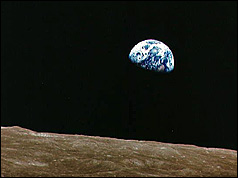1968: Weeks 50-52
Posted on December 20, 2008
Filed Under Culture, Main | Leave a Comment
Weekly timeline for 1968: A year of change and tumult
 December 9: The Rolling Stones release “Beggar’s Banquet.”
December 9: The Rolling Stones release “Beggar’s Banquet.”
December 10: Thomas Merton, a Trappist monk writer, dies in Bangkok, Thailand from accidental electrocution. He had just finished his seventh journal “The Other side of the Mountain.”
December 10: Carol Reed’s “Oliver!” starring Ron Moody and Oliver Reed, opens.
December 12: Robert Aldrich’s “The Killing of Sister George” opens.
December 12: Tallulah Bankhead dies at age 66.
December 18: “Chitty Chitty Bang Bang,” based on the novel by Ian Fleming, and starring Dick Van Dyke, opens.
December 19: Norman Thomas, founder of the ACLU and Socialist Party leader (1926-55), dies at age 84.
December 20: Author John Steinbeck dies from a bad heart in New York City at age 66.
December 20: Two teenagers, David Farraday and Betty Lou Jensen, are shot to death in a parked car on Lake Herman Road outside Vallejo, California. The murder is attributed to the Zodiac killer.
December 21: David Crosby, Stephen Stills and Graham Nash premiere together in California.
December 21: Apollo 8, with astronauts Borman, Lovell and Anders, is launched on the first mission to orbit the Moon.
December 23: 82 crew members of the U.S. intelligence ship Pueblo are released by North Korea, 11 months after they had been captured.
December 24: Disney’s “The Love Bug” opens.
 December 24: The three Apollo 8 astronauts, orbiting the moon, read passages from the Old Testament Book of Genesis during a Christmas Eve television broadcast. The first pictures of an Earth-rise over the Moon are seen as the crew of orbits the moon.
December 24: The three Apollo 8 astronauts, orbiting the moon, read passages from the Old Testament Book of Genesis during a Christmas Eve television broadcast. The first pictures of an Earth-rise over the Moon are seen as the crew of orbits the moon.
December 26: “Monterey Pop” is released.
December 28: The Beatles’ “White Album” hits No. 1 for 9 weeks.
Sources:
The Whole World Was Watching: An oral history of 1968. A joint project between South Kingstown High School and Brown University’s Scholarly Technology Group
Timelines of History
Timeline 1968
Rock Timeline
Wikipedia Music Timeline
Frank Eugene Smitha’s Macrohistory and World Report
Comments
Leave a Reply